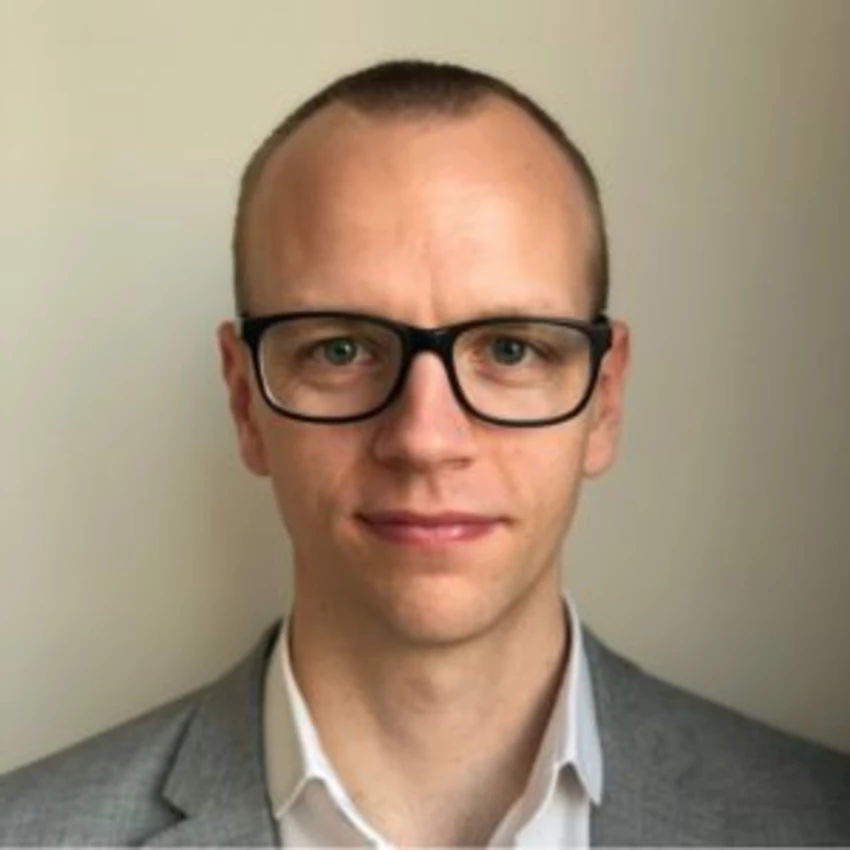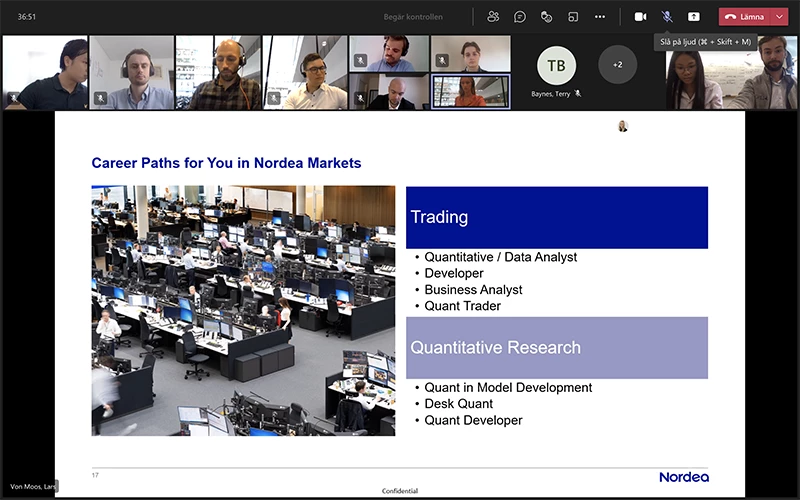
Life as a quant in Nordea Markets
To do just that, Daniel, Lars and two other members of the e-Trading team recently participated in the virtual Quant Fair at Lund University in Sweden. The event, arranged by the STEM division of the Lund University Finance Society (LINC), gathered 30 students to learn more about how they can apply their skills in finance.
One student attendee, Johanna Lindholm, a double-major in Engineering Physics as well as Industrial Management and Engineering, was excited to see the role of STEM grads in banks being advertised more widely.
“At least among my fellow engineering friends, finance is probably not the first thing that comes to mind as a profession. But it’s great to see that you can apply a lot of the really cool technology, machine learning and computer science, and that there’s a place for STEM graduates as well,” she says.




